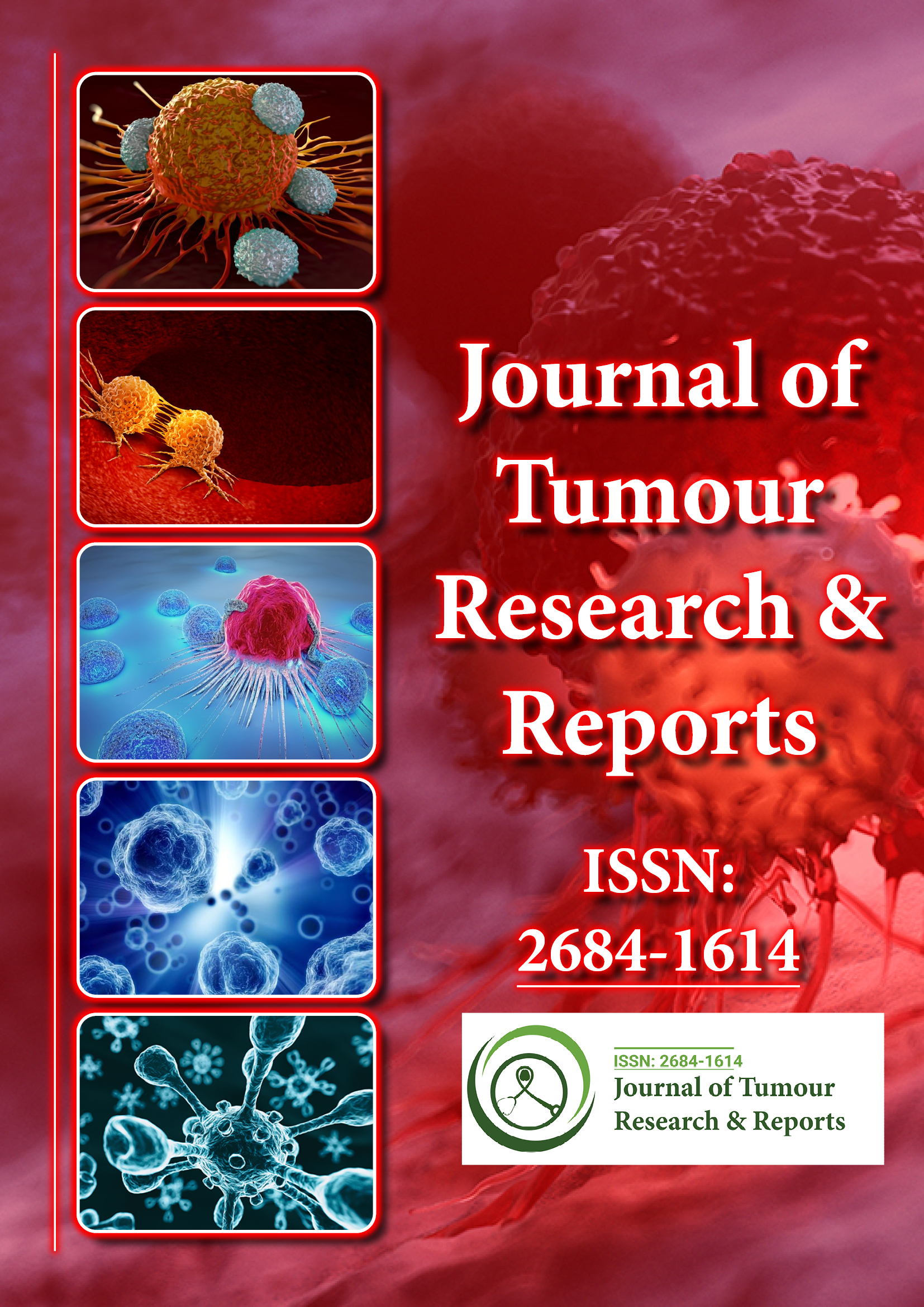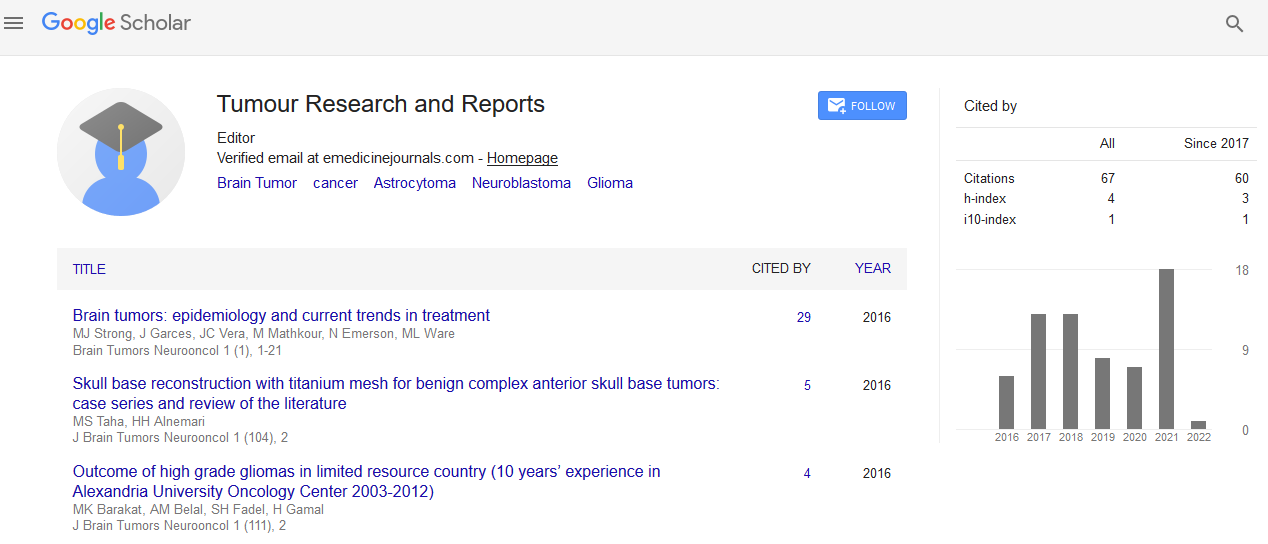Indexed In
- RefSeek
- Hamdard University
- EBSCO A-Z
- Google Scholar
Useful Links
Share This Page
Journal Flyer

Open Access Journals
- Agri and Aquaculture
- Biochemistry
- Bioinformatics & Systems Biology
- Business & Management
- Chemistry
- Clinical Sciences
- Engineering
- Food & Nutrition
- General Science
- Genetics & Molecular Biology
- Immunology & Microbiology
- Medical Sciences
- Neuroscience & Psychology
- Nursing & Health Care
- Pharmaceutical Sciences
Abstract
Skull Base Reconstruction with Titanium Mesh for Benign Complex Anterior Skull Base Tumors: Case Series and Review of the Literature
Taha MS and Alnemari HH
Aim: The aim of the study was to evaluate the role of titanium mesh used in combination with other synthetic materials in providing a rigid support for reconstruction of anterior skull base defect and preventing CSF leak.
Material and methods: All Cases of complex benign anterior skull base lesions operated between December 2008 and December 2013 (5 years) which had titanium mesh for reconstruction were reviewed. Six operations were performed on five patients for large anterior skull base meningioma (3 cases) and fibrous dysplasia (2 cases). The main complaint was exophthalamous in 4 patients, and one presented with nasal blockage due to ethmoidal and nasal invasion. The reconstructions were performed by using titanium mesh with pericranial flaps, synthetic dural grafts, and surgical glue. Routine lumbar drain was not used. Three patients had previous surgeries. Three patients were female, and the age range was 4 to 55. We had a minimum of 12 months follow up. The incidence of CSF leak, infections, and other surgical morbidity related to the reconstruction were recorded. The status of exophthalamous post operatively was also observed.
Results: We had no incidence of CSF leak or infection. One case of recurrent psuedomeningocele was encountered and it required repeated aspiration, then lumbar drain, and finally insertion of subgalial-peritoneal shunt. Exophthalamous improved in 3 patients and remain the same in one.
Conclusion: Use of titanium mesh with local flaps or synthetic dural graft and surgical glue is safe, simple, and effective for reconstruction of anterior skull base defects caused by benign tumor or fibrous dysplasia.

